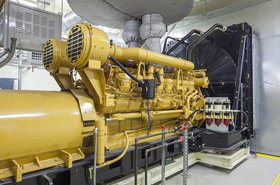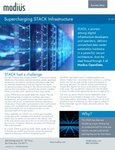In recent years, the world has witnessed a dramatic increase in the demand for data centers.
Last year, CBRE reported that in the first half of 2022, primary US markets tripled their year-over-year positive absorption at 453.4 MW, and the numbers are only expected to grow. McKinsey forecasts that data center demand in the US will grow 10 percent every year until 2030.
Enter the fuel cell
However, as the demand for data centers grows, so does their energy consumption, and along with it, their environmental impact. Researchers and engineers have been exploring various ways to make data centers more energy efficient and environmentally friendly, and one of the solutions gaining attention is the use of green gas collection fuel cells as the prime power in data centers.
Green gas collection fuel cells are an innovative technology that utilizes renewable energy sources to generate electricity. Specifically, they use biogas, a mixture of methane and carbon dioxide produced by the decomposition of organic waste in landfills and wastewater treatment plants. When biogas is consumed in a fuel cell, it produces electricity and heat, with water and carbon dioxide being the only byproducts.
The use of green gas collection fuel cells as prime power in data centers has several benefits in advancing carbon reduction and operational performance of these facilities. A renewable and low-carbon fuel, biogas as the prime power allows data centers to significantly reduce their carbon footprints.
In fact, the avoided emissions from biogas can lead to a negative carbon footprint; the biogas and biomethane industries could help reduce worldwide greenhouse gas emissions by 10 to 13 percent, according to the World Biogas Association.
With biogas as the power source behind these fuel cells, data centers can diminish their reliance on fossil fuels and decrease subsequent greenhouse gas emissions. Transitioning to this renewable power source will enable companies to further their sustainability goals, reduce their environmental impact, and contribute to a more sustainable future.
Additionally, green gas collection fuel cells are highly efficient. These fuel cells have an energy conversion efficiency of up to 60 percent, which is significantly higher than traditional power generation technologies.
This increased efficiency means that the fuel cells can generate more electricity using less fuel, resulting in energy savings and lower operating costs for data centers.
Green gas collection fuel cells are reliable and provide a continuous source of power, a significant advantage in the data center industry that exists to ensure uninterrupted data processing and storage. Unlike the variable—and, consequently, intermittent—power sources of solar and wind, biogas produces renewable energy 24/7/365 with a reliability rate of 95 percent.
Such a reliable power source could alleviate power-related outages that, as Uptime Institute reports, contributed 43 percent to overall downtime in the past three years. Subsequently, in the event of a grid outage, green gas collection fuel cells can be used as a backup power source, maintaining data center operational performance and preventing data loss and downtime.
Increased reliability
Green gas collection fuel cells ensure a higher level of reliability and resiliency of data centers. With global spending on data center construction forecasted to grow at a compound annual growth rate (CAGR) of 5.4 percent and reach $49 billion by 2030, it is crucial that the digital infrastructure industry explore innovative and sustainable ways to power these facilities.
Data center developers must take proactive measures to ensure data center-related greenhouse gas emissions do not accelerate just as quickly. Green gas collection fuel cells represent a viable power solution for data centers to reduce their carbon footprint, improve their energy efficiency, and increase their reliability, ultimately helping companies achieve their sustainability goals while supporting the online needs of more than half the people on the planet.








